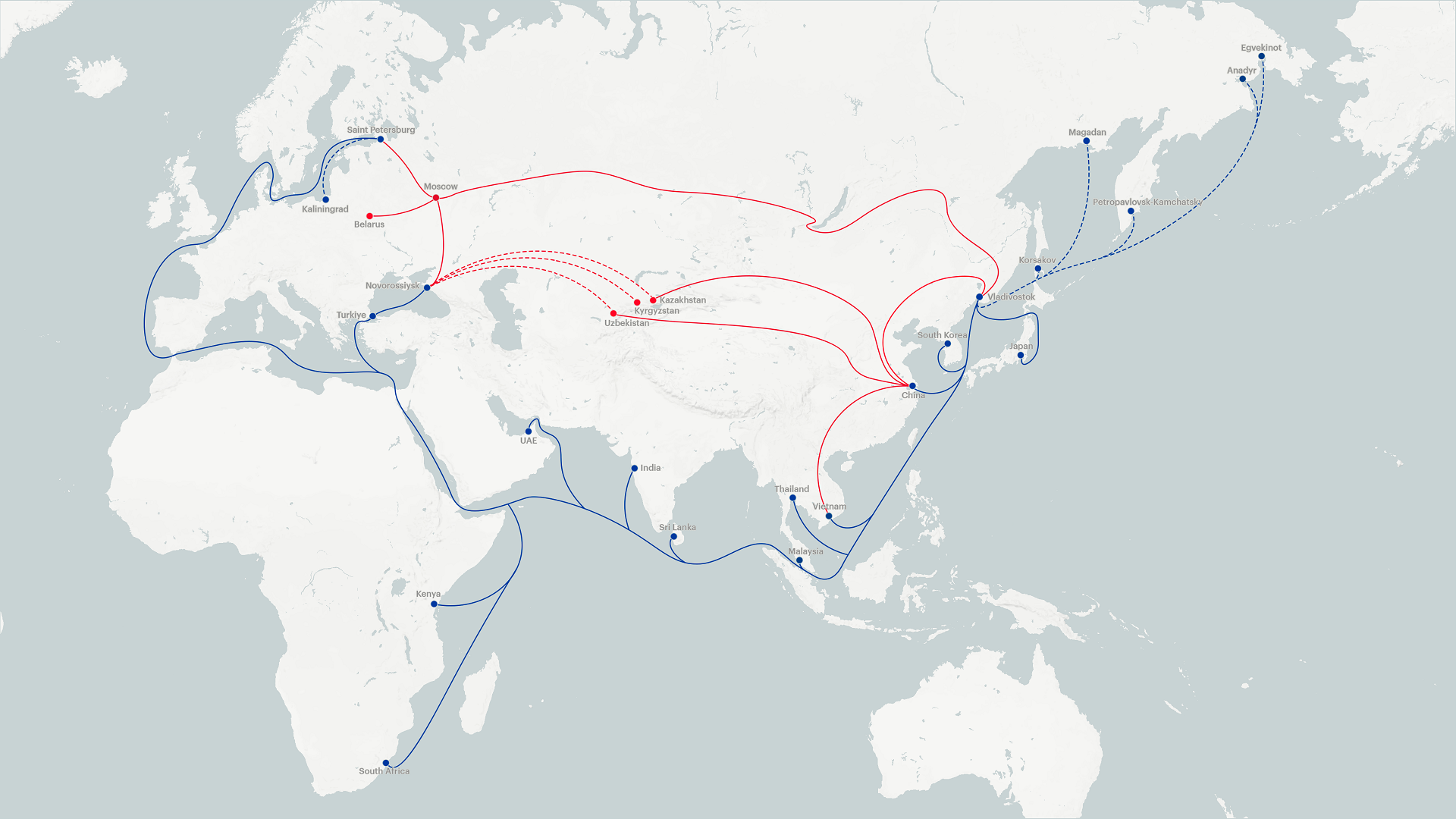FESCO transports dangerous goods, including chemicals, from Turkey, China, India and Southeast Asian countries to Russia by marine services via the port of Novorossiysk, regular container trains or road delivery across Russia and through border crossings to the CIS countries.
Dangerous goods include substances that can cause harm to human and animal life/health, environment, and all physical objects. Their transportation is regulated by ADR (European Agreement concerning the International Carriage of Dangerous Goods), IMDG CODE, rail transportation rules and other rules – and depends on the dangerous class they belong to. The classes are defined by the UN list, which contains about 3,500 types of goods.
In accordance with ADR, there are 13 classes of dangerous goods:
- class 1: explosive substances and products
- class 2: gases
- class 3: flammable liquids
- class 4.1: flammable solids
- class 4.2: substances capable of spontaneous combustion
- class 4.3: substances that emit flammable gases in contact with water
- class 5.1: oxidizing substances
- class 5.2: organic peroxides
- class 6.1: toxic substances
- class 6.2: infectious substances
- class 7: radioactive materials
- class 8: corrosive substances
- class 9: other dangerous substances and products
The following data are required for preparation and transportation of dangerous substances:
- Safety Data Sheet (MSDS) indicating the shipping name of the cargo, its hazard class and UN number, as well as full conditions for its transportation by the required modes of transport
- Packing group and requirements for it. Certificate for containers
- Requirements for loading, transportation, unloading
- Information on all cargo planned for transportation in 1 container, to check the possibility of joint shipment of different cargoes in 1 container
- Exact quantity of cargo presented for transportation
For a full list of required documents for a specific type of dangerous goods depending on the transportation route, please contact sales@fesco.com.
Transportation of dangerous substances with FESCO: types, methods, standards
The substances specified in the UN list are potentially dangerous. If they are properly transported, they cannot cause harm. That is why choosing a carrier is very important. FESCO Group has many years of experience in transportation of dangerous products and chemicals.
FESCO transports dangerous substances of classes 2–9 by sea, rail and road. You can learn more about the possibility of transporting your cargo by request to sales@fesco.com.
Types of transported cargoes
- Batteries, airbags
- Mineral and chemical fertilizers
- Salts
- Acids
- Alkalis
- Substances containing alcohol
- Medicines, chemicals, perfumes containing alcohol
- Refrigerants, compressed and liquefied gases in cylinders, ethers
- And other cargo
For the transportation of dangerous goods, FESCO uses universal and special containers, the design and parameters of which comply with the requirements of standards and technical conditions and ensure the safety of the cargo and the safety of transportation.
FESCO delivers dangerous goods and chemicals in compliance with the required standards
- All our specialists are trained in occupational safety and are qualified to transport dangerous cargo
- Special equipment complies with ADR
- Containers ensure safety of cargo and its properties during transportation
- Clients are fully informed about transportation of dangerous cargo




